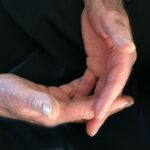Why Testosterone Drops After 30 — And How to Fight Back 🕒💪
Most men know that testosterone levels drop with age — but few understand the full scope of what that really means. The testosterone and aging connection goes beyond sex drive and muscle. It affects your energy, mental sharpness, fat distribution, sleep quality, and overall sense of masculinity.
What Happens to Testosterone After 30?
Testosterone production begins to decline naturally around age 30, typically at a rate of 1–2% per year. While that may not sound like much, over the course of a decade it adds up. By your 40s or 50s, you could be operating with 20–40% less testosterone than you had in your prime — and feeling the consequences.
Symptoms of Age-Related Testosterone Decline
Here’s what many men begin to notice as their testosterone dips with age:
- Decreased morning erections and libido
- Loss of muscle mass and strength despite training
- Increased belly fat and love handles
- Low motivation or mood instability
- Poor sleep and slow recovery
- Less confidence and reduced drive to compete or achieve
These aren’t just “getting older” — they’re signs of a hormonal shift. The good news? You can slow or even reverse many of these changes.
The Role of SHBG and Free Testosterone
As men age, levels of sex hormone-binding globulin (SHBG) increase. SHBG binds to testosterone, making it unavailable to your cells. So even if your total testosterone levels look normal, your free testosterone — the active form — may be too low. This is why symptoms matter more than blood test numbers alone.
Why Aging Doesn’t Have to Mean Weakness
Contrary to what the mainstream narrative suggests, aging doesn’t have to mean decline. With the right lifestyle, you can maintain high functional testosterone well into your 50s and beyond. It’s not just about avoiding disease — it’s about staying strong, sharp, sexual, and confident.
How to Naturally Fight Testosterone Decline
The most powerful strategies for maintaining testosterone through aging include:
- Resistance training: Lifting heavy promotes anabolic hormone production
- High-fat diet: Testosterone is synthesized from cholesterol
- Stress reduction: Cortisol kills testosterone (learn more in our cortisol vs testosterone guide)
- Deep sleep: Most testosterone is produced during REM sleep
- Micronutrients: Zinc, magnesium, and vitamin D are essential
- Sexual activity: Regular sex increases testosterone naturally
Warning: What NOT to Do as You Age
Many men make mistakes that accelerate testosterone decline. These include:
- Low-fat or vegan diets with no cholesterol
- Overtraining with zero recovery days
- Using alcohol to “relax” (alcohol lowers T and raises estrogen)
- Ignoring sleep and screen time habits
- Relying only on T-boosting supplements without lifestyle change
What Aging Men With High Testosterone Do Differently
They follow a masculine routine: lift heavy, eat real food, get sunlight, protect sleep, and manage stress like warriors. They also support their endocrine system with adaptogens and minerals. Want to know which herbs help most? Visit our article on adaptogens for male hormones.
Want to slow aging and increase testosterone naturally? Start the complete method here and reclaim your performance, vitality, and masculine confidence — no matter your age.
What the Science Says About Testosterone and Aging
Scientific literature confirms the link between aging and testosterone decline. A study published in the New England Journal of Medicine found that testosterone levels drop consistently with age and that low T correlates with lower bone density, reduced muscle mass, increased fat, and diminished sexual function.
However, the same study also showed that men who maintained good sleep, stayed physically active, and consumed nutrient-rich diets had significantly higher testosterone — regardless of age. It’s not just the calendar that matters — it’s the lifestyle.
Age-Specific Testosterone Support Plan
Here’s a breakdown of how to fight testosterone decline at each life stage:
30s: Build the Foundation
- Train with intensity and track progress
- Cut processed foods and seed oils
- Supplement with magnesium and zinc
- Prioritize deep sleep (7–8 hours)
40s: Optimize Recovery
- Introduce active recovery like walking or yoga
- Use adaptogens to manage cortisol
- Cycle training volume to avoid overtraining
- Ensure a blood panel every 12–18 months
50+: Defend Masculinity
- Focus on joint mobility and resistance bands
- Double down on sleep quality and circadian rhythm
- Eliminate alcohol or limit to rare occasions
- Keep up with intimacy — sexual activity boosts T
The Emotional Side of Low Testosterone
We talk a lot about physical symptoms — but low testosterone affects the emotional core of manhood. Confidence, assertiveness, and competitive drive are all linked to hormonal balance. Many men report feeling “numb” or like a dull version of themselves as testosterone dips with age.
Restoring your testosterone isn’t about ego — it’s about reclaiming your full identity and masculine fire.
Don’t Just Accept Hormonal Decline
Too many men think that fatigue, weight gain, and low libido are just part of aging. They’re not. They’re signs of hormonal neglect — and you can change that starting today.
Need proof? Check out our guide on the signs of balanced hormones in men to see what’s possible when your endocrine system is dialed in.
📉 Age and Testosterone: Side-by-Side Effects
| Hormonal Marker | Age 25 | Age 45+ |
|---|---|---|
| Total Testosterone | 700–900 ng/dL | 350–500 ng/dL |
| Morning Erections | 5–6x per week | 1–2x per week |
| Muscle Mass | High, easy to gain | Declining without effort |
| Fat Distribution | Lean core, minimal belly fat | Increased abdominal fat |
| Mental Sharpness | High drive, competitive focus | Forgetfulness, slower cognition |
FAQs: Testosterone and Aging
At what age does testosterone start to decline?
Testosterone typically begins to drop after age 30 at a rate of about 1–2% per year. This decline may accelerate with chronic stress, poor sleep, excess body fat, and nutrient deficiencies.
Is low testosterone inevitable with aging?
No — while aging plays a role, lifestyle has a far greater impact. Men who train regularly, sleep well, and optimize nutrition often maintain youthful testosterone levels well into their 50s and beyond.
Common Myths About Testosterone and Aging
- “Testosterone decline is inevitable.” — False. While some decline is natural, lifestyle plays a massive role in determining how sharp the drop is.
- “Only old men need to worry about low T.” — Wrong. Testosterone can begin dropping in your early 30s — and even faster if you’re sedentary or stressed.
- “Low T only affects your sex drive.” — Not true. It impacts fat storage, motivation, focus, sleep, and even immune strength.
Checklist: How Is Aging Affecting Your Testosterone?
Answer Yes or No:
- Have you gained belly fat in the last 12 months?
- Are your morning erections weaker or less frequent?
- Is your sleep often disrupted or restless?
- Do you feel less competitive or driven than before?
- Do workouts leave you drained instead of energized?
- Is your sex drive inconsistent or fading?
If you answered “Yes” to 3 or more, aging might already be impacting your hormonal health — and it’s time to take action.
Active Men vs Sedentary Men: The Testosterone Gap
Men who stay active into their 40s and 50s have dramatically higher testosterone than those who become sedentary. One study from the Journal of Applied Physiology found that older men who lift weights at least 3 times per week maintain testosterone levels similar to men a decade younger.
Physical activity, especially resistance training, is one of the most powerful natural testosterone enhancers available — no matter your age.
Simple Habits to Maintain Testosterone Through the Years
You don’t need an overhaul. You need daily consistency. Start with these:
- Lift weights 3–4x/week — prioritize compound movements
- Get 15–20 minutes of sunlight every morning
- Eat whole foods high in protein, fat, and micronutrients
- Shut down screens 90 minutes before bed
- Use adaptogens like ashwagandha to regulate cortisol
- Take magnesium glycinate to support deep sleep
Final Thoughts: Don’t Let Age Define Your Masculinity
The connection between testosterone and aging doesn’t have to be negative. You can control how you age, how you feel, and how you perform. Aging is inevitable — decline is optional.
 Testosterone and Aging: What Really Happens to Your Hormones Over Time – strength and sexual wellness theme – via supremepenis.com
Testosterone and Aging: What Really Happens to Your Hormones Over Time – strength and sexual wellness theme – via supremepenis.com








